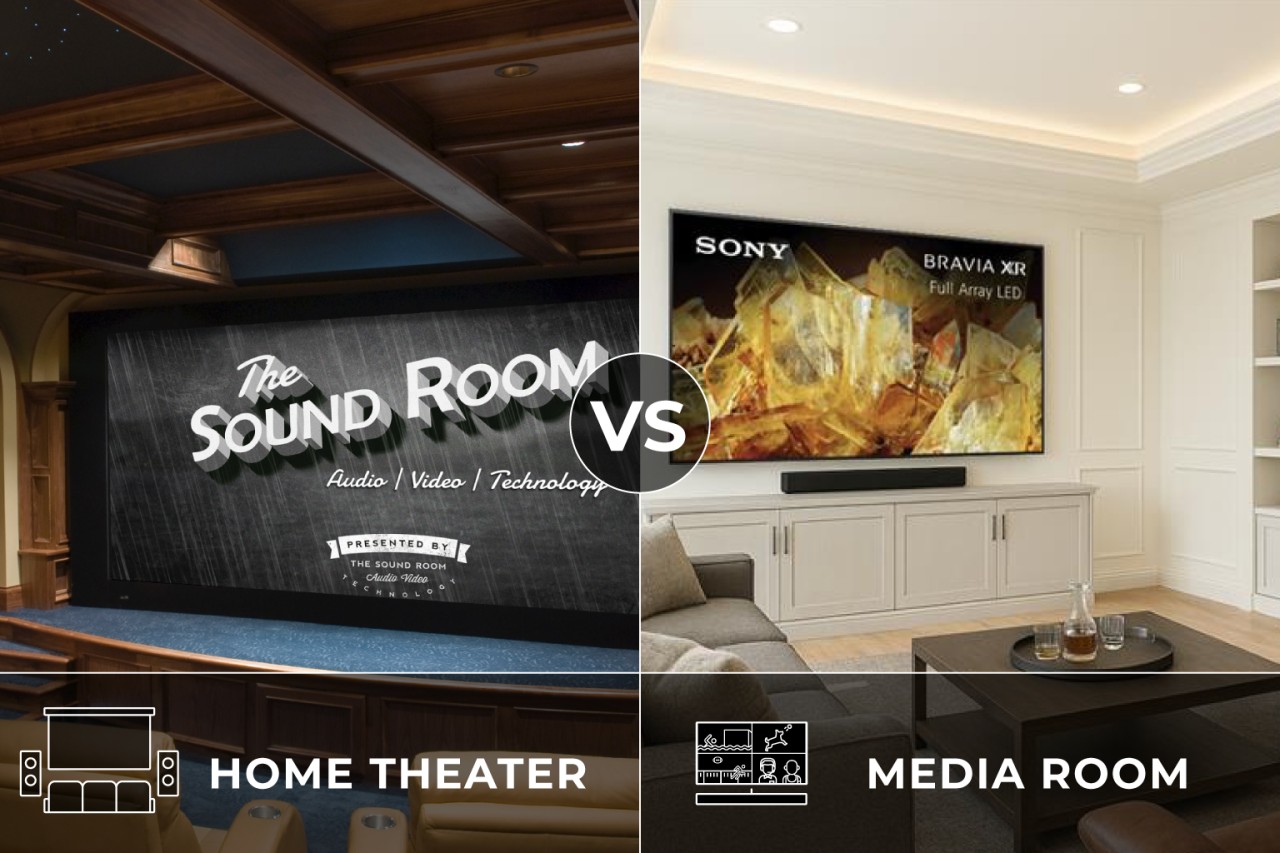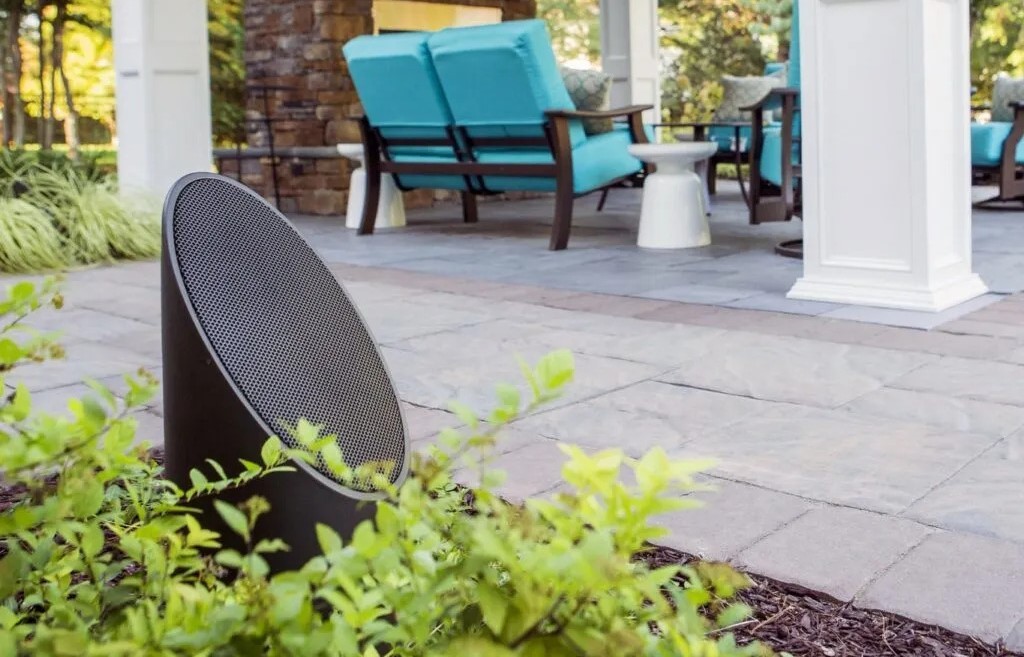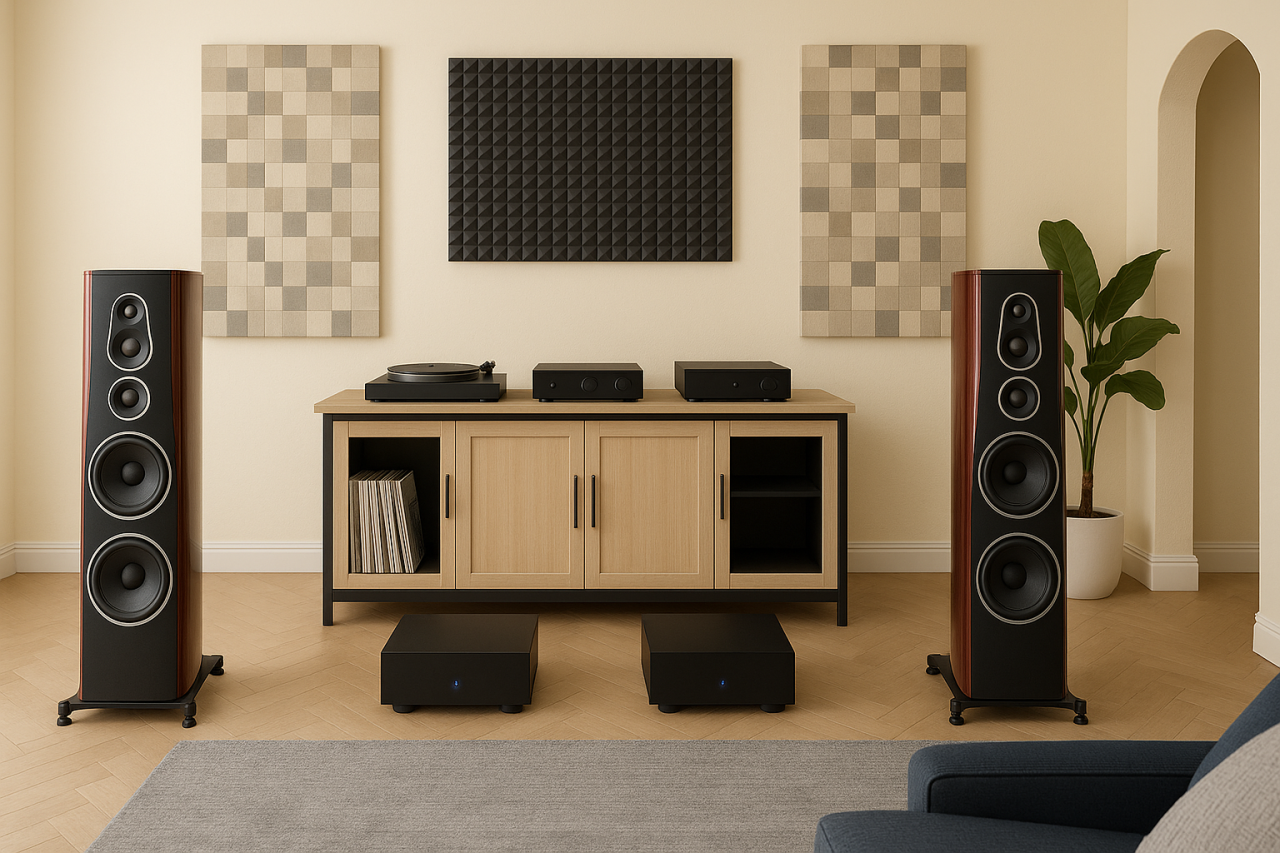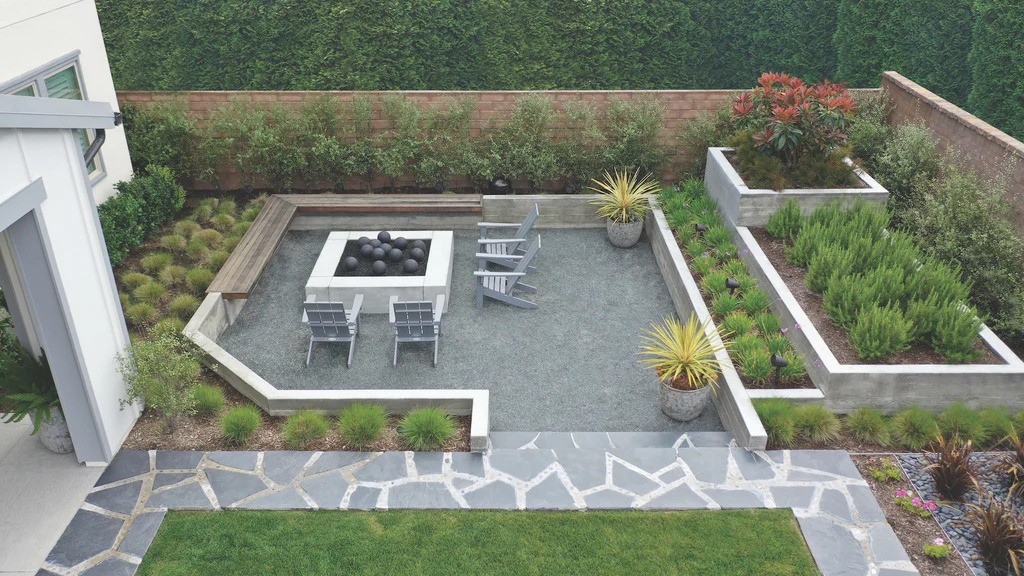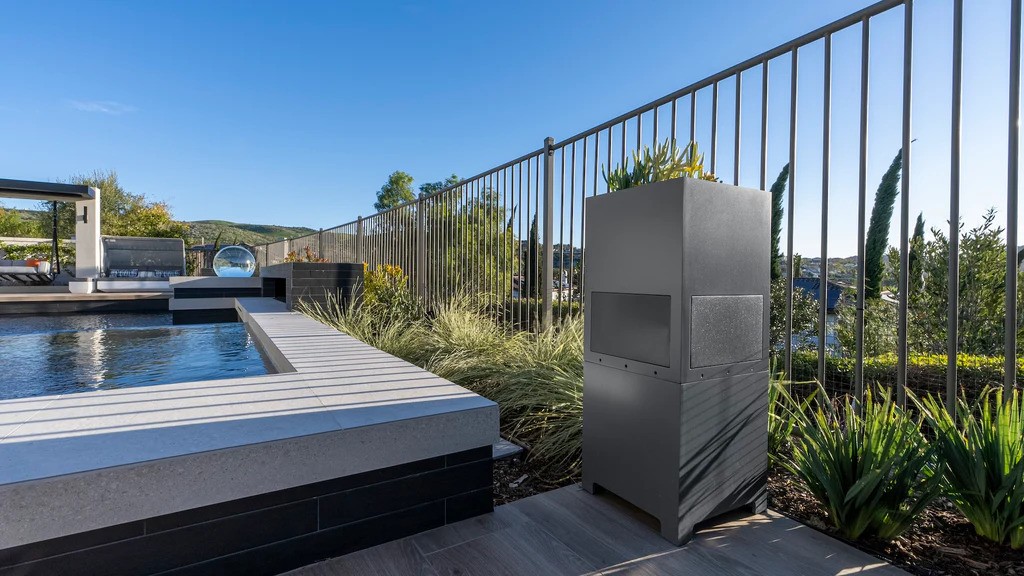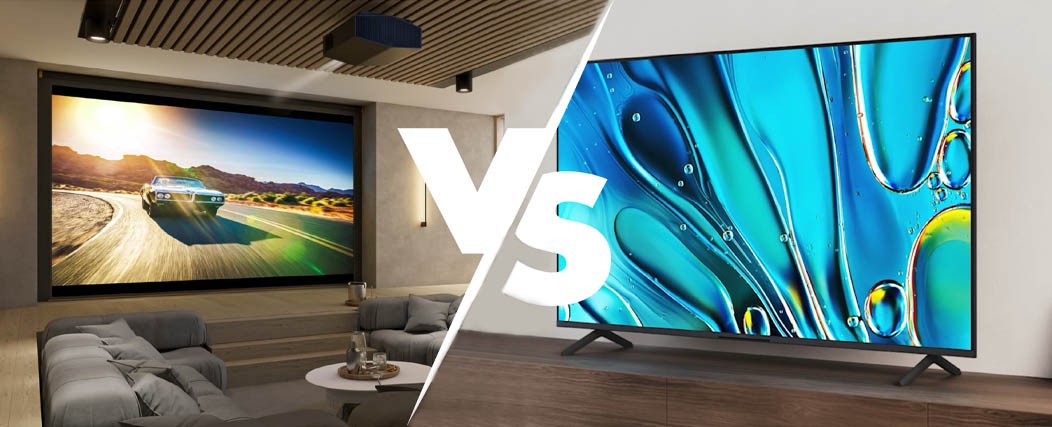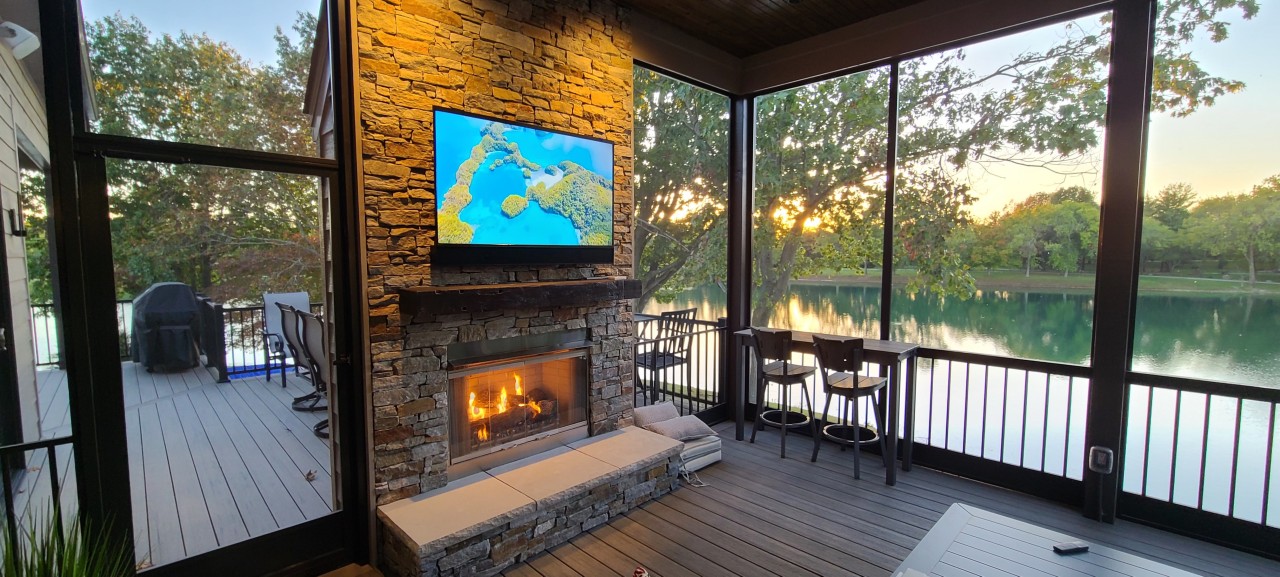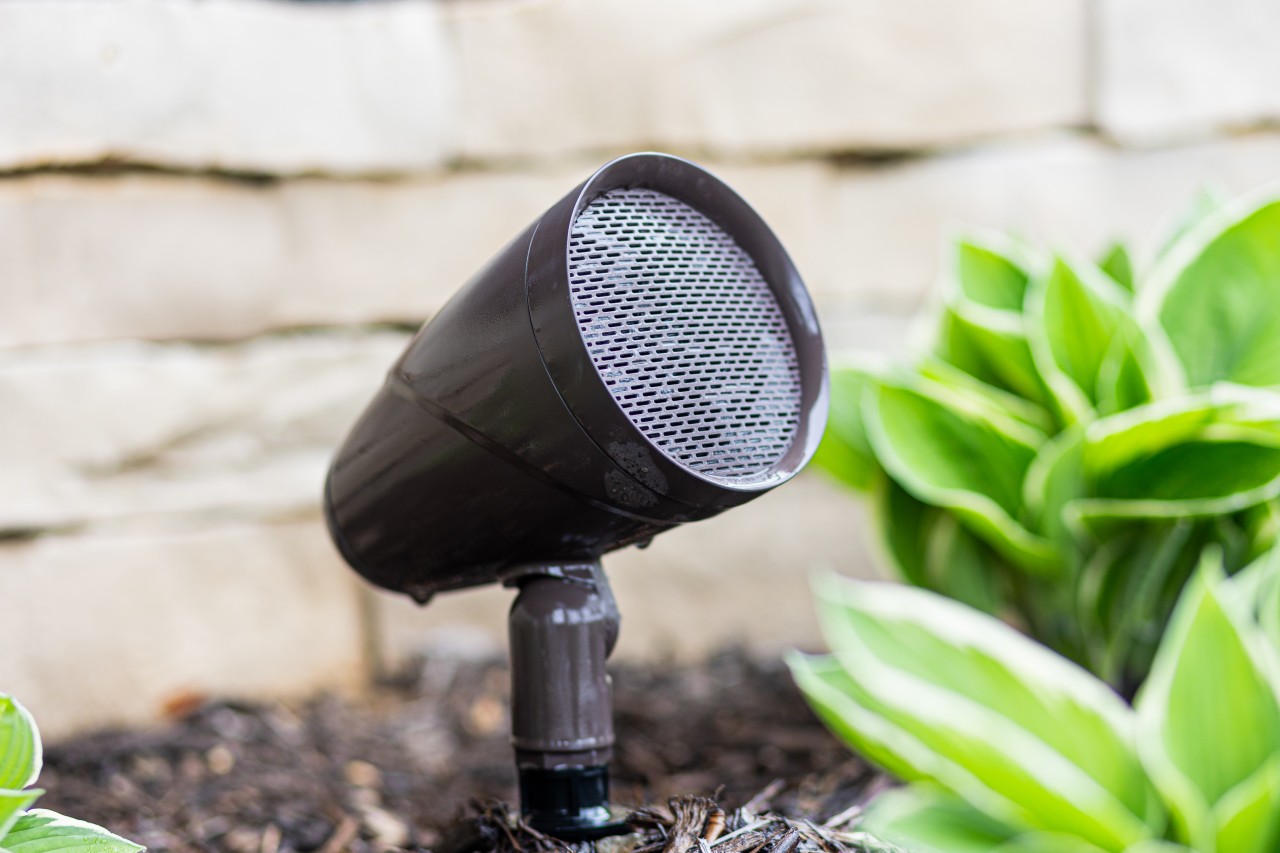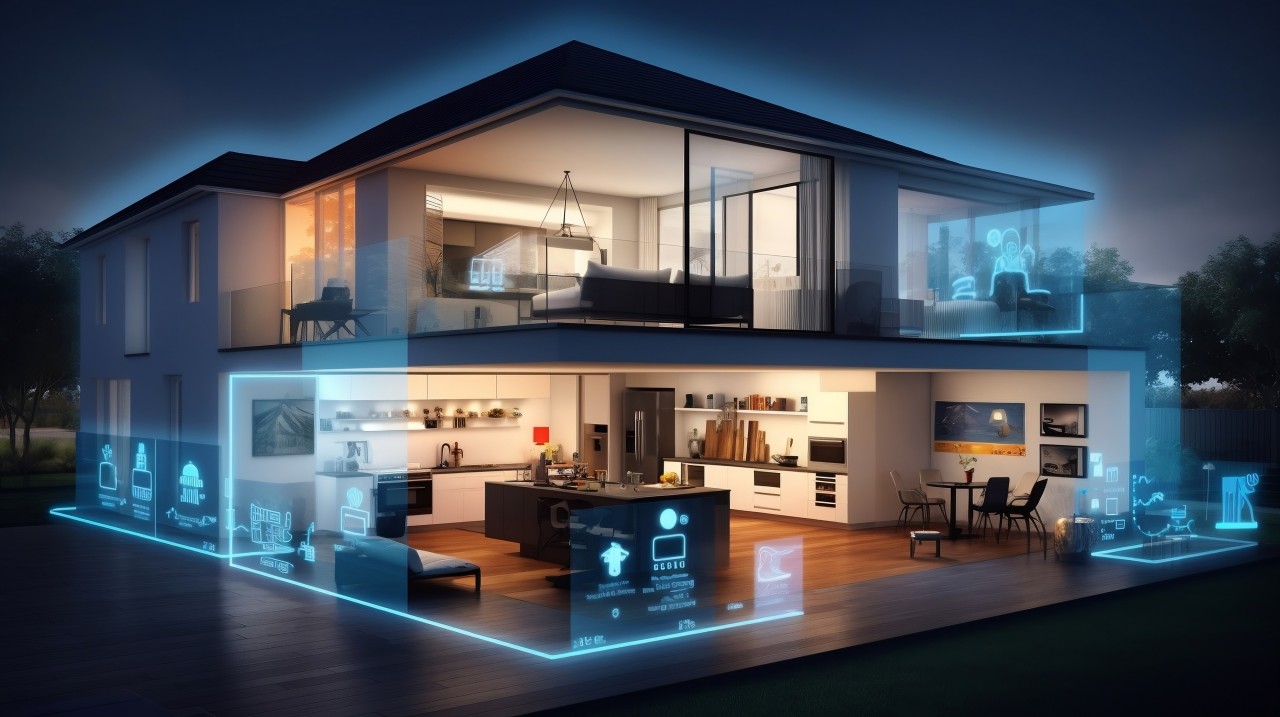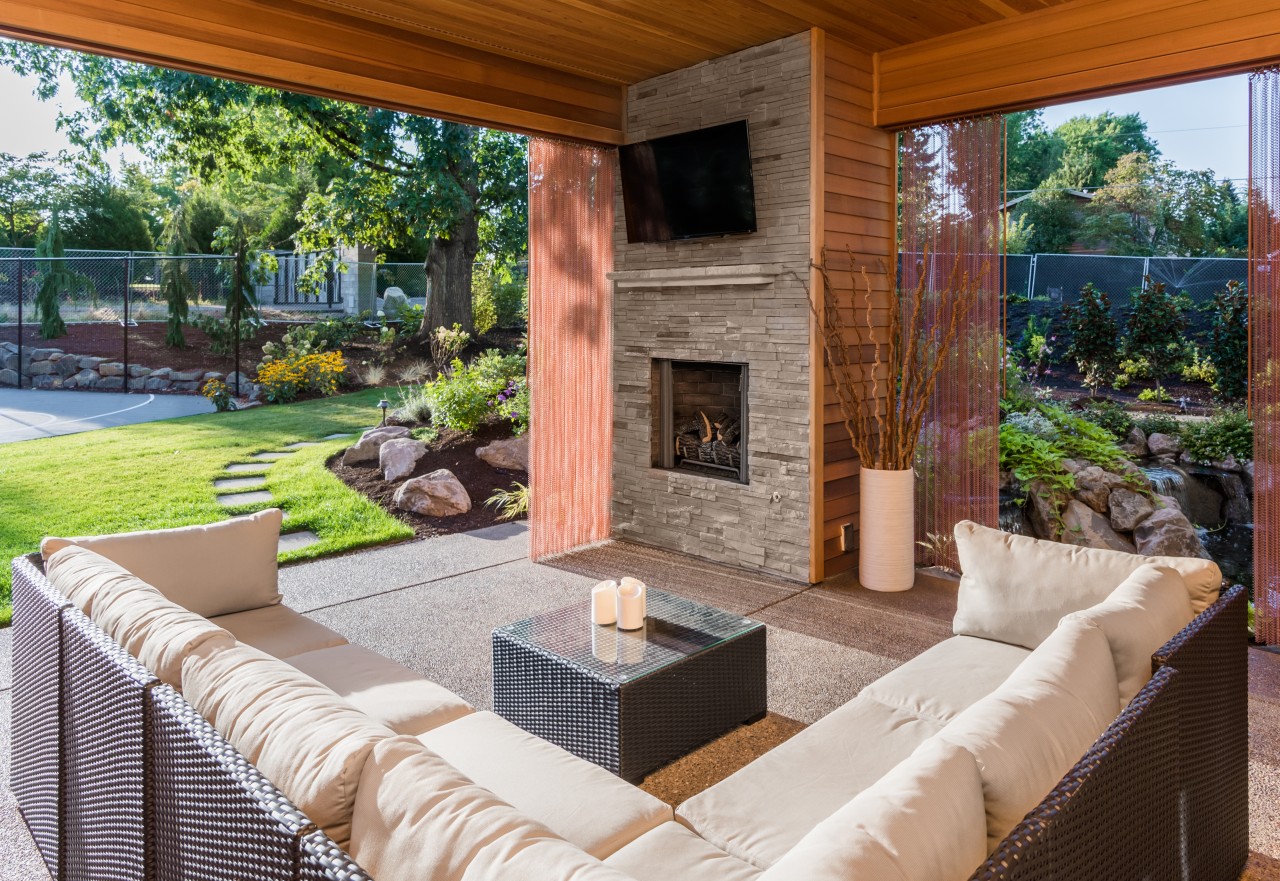The Sound Room President David Young recentl...
Are you in the market for an upgrade to the way your family enjoys your favorite movies, TV shows, and sporting events? If so, you’ve probably considered whether a Smart TV or a projector is a better fit for your needs. In this article, we’ll break down all the things you need to consider before making a decision your family will benefit from for years to come.
TV vs. Projector: Lighting
The first thing to consider is where in your home the TV or projector is going to be used. TVs tend to deliver brighter and more vibrant images than projectors in a variety of lighting scenarios. Projectors can rival the picture quality of TVs in dark rooms, but if your room has windows or you prefer to watch TV with the lights on you will notice a slight downgrade in brightness and vibrance. For that reason, TVs tend to work better for all purpose viewing while projectors are better suited for theater rooms or man caves dedicated to viewing.
TV vs. Projector: Space
Now that you’ve accounted for lighting, it’s time to consider whether a Smart TV or a projector would physically fit better in your space. TVs take up more space than a projector or screen. When a projector is not in use, retractable screens can be removed from the room creating a better aesthetic. However, a TV can be placed almost anywhere in a room. Installing a projector requires a little more thought to room setup and layout.
TV vs. Projector: Cost
Today’s modern laser projectors come with a higher price tag than a high-quality Smart TV. Projectors typically deliver a lower cost per inch of screen size, but there are additional factors to consider. A Smart TV is an all-in-one solution with sound and streaming apps built in. You can plug it in and go. With a projector, you will need to purchase a screen, sound system, and video sources.
TV vs. Projector: Screen Size
The most popular high-quality TVs on the market range in size from 55” to 85”. However, there are some that are up to 100”. Home theater projection screens typically start at 100” and go upward from there. If top end screen size is important to you, a projector is more likely to deliver the experience you are looking for.
Outdoor television technology has come a long way in the past decade. Today’s outdoor TVs deliver high quality picture, streaming capabilities, and greater durability than ever before. In this article, we’ll help you learn more about the outdoor TV market and what you can expect from the top outdoor TV brands we sell at The Sound Room.
What You Can Expect from All Outdoor TVs
Weather Resistance: This is especially important in a climate like St. Louis’. The humidity is high. The temperatures can range from extremely cold to extremely hot. Outdoor TVs are built to stay outside and plugged in year-round. They have heating and cooling features that protect them from the elements and only work if the product is plugged in. You can even rinse them off with a hose and will experience no performance issues.
Tailored Sound Solutions: Many outdoor TVs don’t come with an internal speaker. Why? Because broadcasting sound in an outdoor environment with a built-in television speaker is a tall task. Instead, outdoor TVs utilize sound solutions tailored to the environment they’re being used in. Many customers use a sound bar to project the sound directly to viewers. Others opt to use outdoor speakers mounted to their home or deck, or even hidden in their landscaping. You can direct your music as well as your TV sounds through the same speakers, depending on what media you’re using in a given situation.
Protection from Pests: Customers are often surprised to learn bugs are the leading cause of failure for indoor TVs used outside. TVs make an attractive home for bugs. This can cause electrical shorts and even turn your television into a fire hazard. All outdoor TVs are built specifically to keep bugs out.
Durability: You might think that any TV used outdoors, even if they’re built for it, can only last so long. But in all our years of installing outdoor TVs in the St. Louis area, we have only sold a select few that have needed to be replaced. These units have a reputation to holding up in even the harshest conditions.
As outdoor living spaces become an integral extension of modern homes, the demand for high-quality outdoor audio systems has soared. Whether it's for entertaining guests or enjoying some personal relaxation time, investing in outdoor audio can significantly enhance your outdoor experience. In this blog, we'll address some common questions about outdoor audio systems.
What are the differences between indoor and outdoor audio systems?
Outdoor audio systems offer superior sound quality for outdoor spaces, durability, and often come with features specifically designed for outdoor use. They are built to withstand various weather conditions, ensuring uninterrupted performance regardless of the elements. This can give peace of mind in a region with as much climate variation as the St. Louis area! Additionally, they often incorporate advanced technology for optimal sound dispersion and clarity, delivering an immersive listening experience.
What are some key features to look for in your outdoor audio solution?
Consider features such as weather resistance, power handling capabilities, sound quality, and scalability. Look for speakers with robust construction, UV-resistant finishes, and waterproofing to ensure longevity, and opt for trusted brands with a reputation for delivering superior sound quality. Scalability is another essential component for accommodating different outdoor spaces, sizes, and preferences, allowing you to expand or customize your system as needed. If you’re not sure where to start, our team of experts can assess your outdoor space and make recommendations based on our decades of experience.
What are the most popular brands in high-end outdoor audio solutions?
Several renowned brands excel in providing high-end outdoor audio solutions, including Sonus faber, Paradigm, Bowers & Wilkins, James Loudspeaker, and Sonance. Sonus faber is acclaimed for its luxurious craftsmanship and premium sound quality, offering elegant outdoor speakers that blend seamlessly with any outdoor environment. Paradigm is known for its innovative speaker designs and exceptional performance, with a range of outdoor speakers suited for any application. Bowers & Wilkins combines cutting-edge technology with sleek aesthetics. Sonance specializes in high-fidelity outdoor audio solutions, offering an extensive selection of speakers, subwoofers, and amplifiers tailored to outdoor settings. The Sound Room offers complete lines of outdoor audio systems from all of the industry’s most trusted brands.
How do I choose the right audio system for my outdoor space?
First and foremost, it’s important to find an expert that you trust to provide guidance for your space and the way you hope to use it. They’ll begin by assessing the size of your outdoor area, desired sound quality, and aesthetic preferences, considering factors like speaker placement, coverage area, and zoning options to create your ideal environment. Audio professionals and experienced dealers like The Sound Room can provide personalized recommendations based on your needs and budget.
In today’s fast-paced world, home automation technology can make even the most mundane tasks easier can have a huge impact on our quality of life. Advancements in technology and automation have revolutionized the way we interact with our homes. The possibilities are endless, but this blog will cover a few different applications for how you can make enable home automation solutions to have a profound impact on your daily life.
1. Lighting Design
Lighting design and automation play a pivotal role in setting the ambiance of your living spaces. The Sound Room’s experienced lighting designers can work with you to define what you’re looking for in your space, make recommendations based on the layout of your home, and then help you install it without a hitch.
A smart lighting system allows you to customize the color, brightness, and timing of your lights to suit your preferences and lifestyle. Here are some common examples:
- Dim the lighting when you’re winding down for the evening or hosting a dinner party
- Automatically turn on bedroom lights in the morning—whether for a stubborn teenager, an early morning workout, or a tired parent
- Set your lights to turn on in the kitchen at night so you’re not fumbling with them while trying to prepare dinner
- Enhance home security by making it appear as though someone is always in the house
No matter the application that makes the most sense for your lifestyle, putting a smart lighting system to work for you is one way to make your daily life easier.
2. Automated Window Shades
Implementing automated window shades in your home offers convenience and comfort. There are a variety of reasons that someone may choose to add automated window shades to their home:
As the weather begins to warm up each year, we see a growing number of customers looking into outdoor entertainment components. The television is often the centerpiece of any outdoor entertainment space, and customers have many questions about using TVs outside. In this article, we break down the most frequent questions we get from customers about outdoor TVs and provide clear answers to help you make well-informed product decisions.
Can a regular TV be used for outdoors?
Short term? Yes. Long term? No. Temporarily, an indoor TV will function outdoors. So if it’s a one-time situation in mild temperature and weather conditions and you want to have a TV outdoors for an afternoon, you could technically use any TV. But if you plan to watch television outdoors more frequently or you plan to keep the TV outside full time, you should not use a regular indoor TV. It is not designed to stand up to outdoor conditions and will fail much sooner.
Are outdoor TVs waterproof or just water resistant?
You’ll need to do some research. Some outdoor TVs are designed to be completely waterproof. They could withstand a direct downpour of rain and still function normally. Others are water resistant. They will stand up to wet weather better than your indoor TV, but are not made to withstand constant direct precipitation. Water resistant TVs will work fine under a covered porch, but if your TV will not be covered and protected from rain, you should go with a waterproof model.
Are outdoor TVs more expensive than indoor TVs?
Typically, outdoor TV models will be more expensive than comparable indoor TVs. Why? It comes down to features. Outdoor TVs feature specialized design and weather-resistance that creates additional expense. But they will also last much longer than a regular indoor TV in an outdoor environment.
Do I need a special mounting bracket for an outdoor TV?
Yes. Most TV mounts are made of metal. So it’s important to select a TV mount that is rated to stand up to weather, or you will deal with rust and corrosion that will deteriorate the materials and require you to replace the mount. If you’re investing in an outdoor TV, it’s also smart to invest in a mount made for outdoor use.
